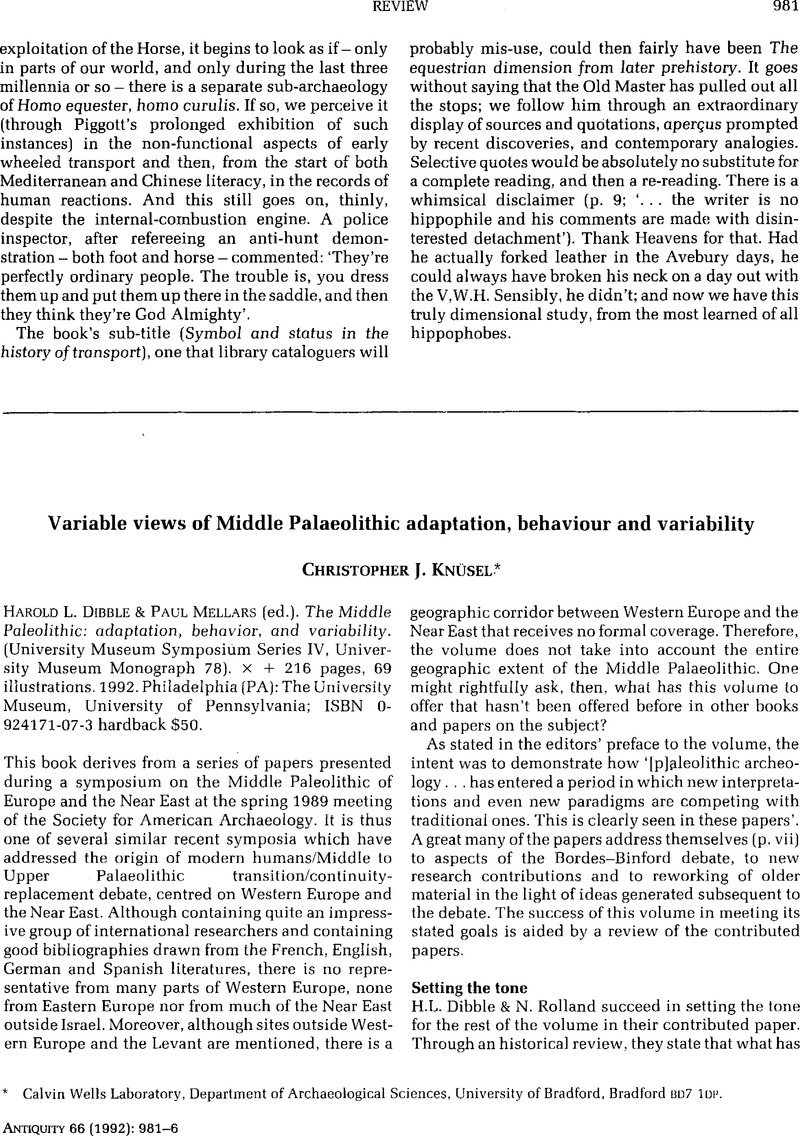Crossref Citations
This article has been cited by the following publications. This list is generated based on data provided by Crossref.
Clark, G. A.
1993.
Paradigms in science and archaeology.
Journal of Archaeological Research,
Vol. 1,
Issue. 3,
p.
203.
Clark, Geoffrey A.
2009.
Sourcebook of Paleolithic Transitions.
p.
19.



